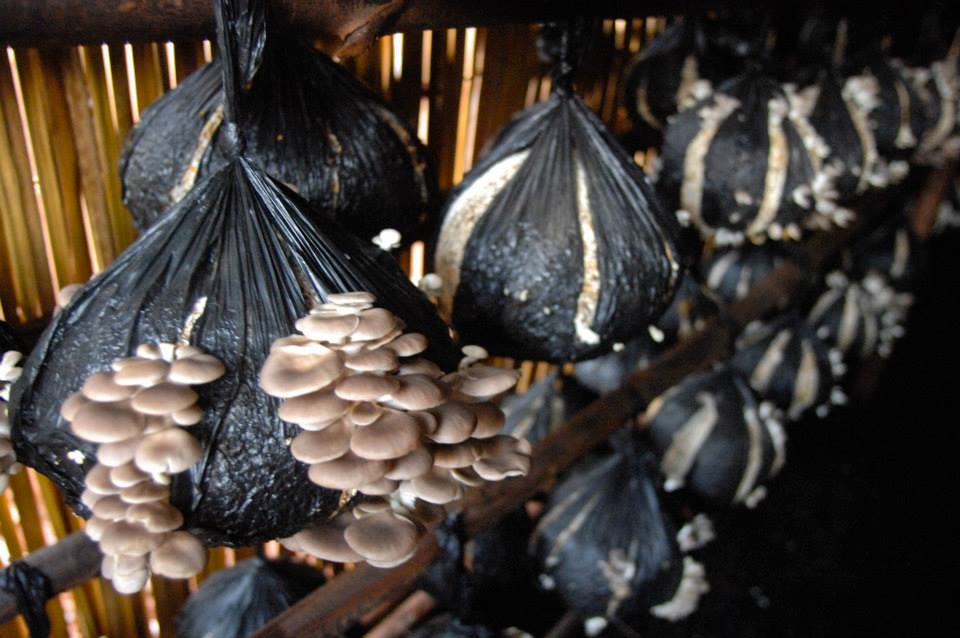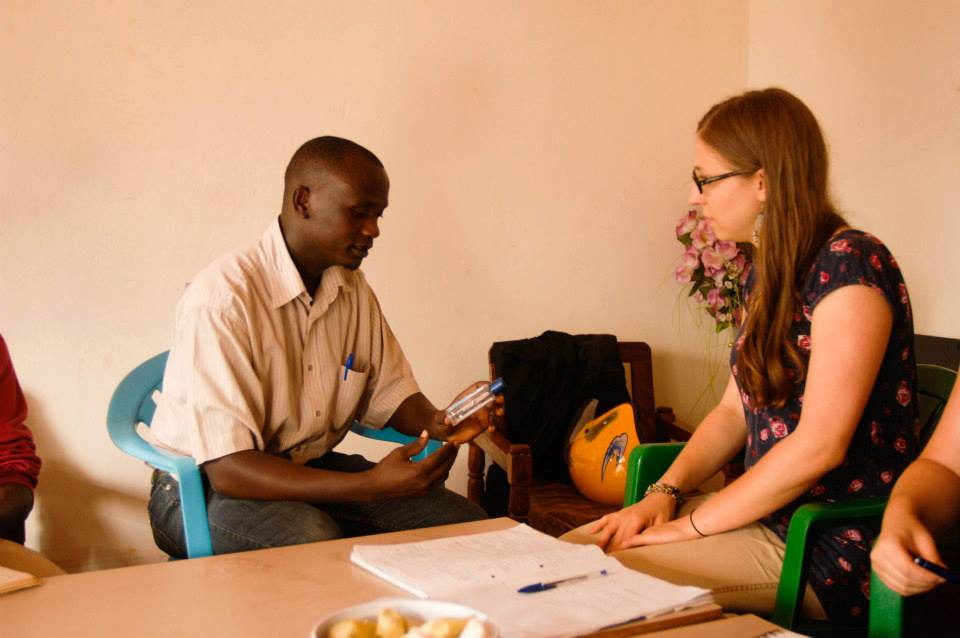Mushrooms are amazing!
In unserer aktuellen Kampagne geht es um #GuteGeschäfte – also um Social Business, Mikrofinanzierung und Existenzgründung. Eines der Projekte, die wir in unserem Newsletter kurz vorgestellt haben ist Mwenya’s Pilzfarm. Dabei handelt es sich um eine Kooperation einer lokalen NGO in Uganda und einer Gruppe Studenten aus England , die gemeinsam ein Konzept für die Züchtung und Vermarktung von Pilzen erarbeitet haben.
Wie das genau funktioniert, erklärt euch Elizabteh Baillie, Fundraising and Publicity Director bei Mwenya Uganda, am besten selbst.
Mwenya Uganda has been growing oyster mushrooms for a year as part of our Income Generating Project and Youth Development Project.
The idea is simple , we grow mushrooms, we sell mushrooms, the money funds Mwenya Uganda’s healthcare work.
Why mushrooms?
Mushrooms are amazing! They’re really high in nutritional value, a cheaper more nutritional version of meat, they grow extremely fast, they’re cheap to produce and they can provide farmers with stable income.
However, every mushroom ‘garden’ (plastic bag from which the mushrooms grow) costs about 5,000UgSh to produce. At the end of every three months the garden stops fruiting and you have to buy more. This purchase is enough to significantly cut Mwenya’s and the farmer’s profits. The mushroom reproduction process is quite technical and needs a laboratory which Mwenya Uganda did not have, so we had to rely on purchasing these ‘gardens’…until…
[caption id=”attachment_8642” align=”aligncenter” width=”576”]  Mushrooms growing in plastic bags[/caption]
Mushrooms growing in plastic bags[/caption]
Help from Exeter University students
Elizabeth Bailie, Mwenya’s UK Director recruited two mad-for-fungi biologists from Exeter University (Charlie Fraser and Max Coulter) to travel to Uganda to help set up a mushroom reproduction laboratory in Mpigi, Uganda. The idea was simple; to close the loop so Mwenya could produce their own ‘gardens’, reduce expenses and increase profits.
The second prong to our mushroom project improvement was to supply hotels and restaurants in Kampala with Oyster mushrooms , creating a market and increasing profits, in comparison with selling them at local market. A dynamic team of UK students (Emily Kirov, Niobe Shaw, Rob Ede) were specifically recruited to train the Ugandan team of marketers in the basics of pitching. This was an enormous success as the team clinched 5 deals with restaurants in Kampala and increased the profits of the mushroom sales by 40%. The Ugandan team were pitching by themselves by the end of the two weeks and felt mush more confident in their marketing ability.
[caption id=”attachment_8639” align=”aligncenter” width=”576”]  Exeter University students training Ugandans in marketing the mushrooms[/caption]
Exeter University students training Ugandans in marketing the mushrooms[/caption]
We raised over 2,500 Euros through betterplace.org to help cover the start up costs for the laboratory, mushroom packaging and the purchase of a motorbike in order to collect the mushrooms from the co-operative group of farmers. Without this money, none of this work would have been possible so thank you very much!
Ein Gastbeitrag von Elizabeth Baillie, Fundraising and Publicity Director bei Mwenya Uganda
–> Zum Projekt “Helping Uganda Do Business”
Gute Geschäfte - Investiere in Zukunft!
Auf unserer Portalseite “Gute Geschäfte – Investiere in Zukunft!” findest Du weitere spannende Projekte rund um die Themen Social Business, Mikrofinanzierung und Existenzgründung.
Du kennst Dich aus in diesen Themen? Teile Dein Wissen mit uns via Twitter mit dem Hashtag #GuteGeschäfte an @betterplace_org